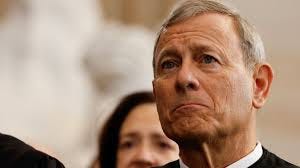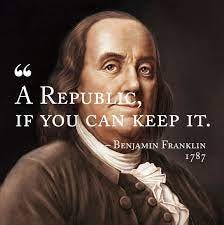On my mind, 03212025: Chief Justice John Roberts recently came out of the dark recesses of the Supreme Court of the United States and issued a response to DJT’s petulant and childish message to Congress to impeach judges who ruled against him, especially Judge James Boasberg who had the temerity to rule that the use of the Alien Enemies Act of 1798 needed to be halted pending further consideration in the courts. Roberts sheepishly stated, “For more than two centuries, it has been established that impeachment is not an appropriate response to disagreement concerning a judicial decision. The normal appellate review process exists for that purpose.” At about the same time Roberts was speaking, Congressman Brandon Gill (respecting his declared gender status, though he seems more a toad than a man) of Texas submitted a resolution calling for the impeachment of Judge Boasberg. When asked on DJT-friendly NewsMax to identify the crime Judge Boasberg committed, Gill replied, “This is for usurping the executive’s authority, for demeaning the impartiality of the court by making a politicized ruling and forcing a constitutional crisis. That is a high crime and misdemeanor.” Of course, Gill, in typical MAGA fashion, fails to acknowledge that our constitutional system empowers federal judges to not only delay the implementation of Executive Orders but also strike them down. Ultimately, Gill could not specify any specific crime related to the “high crime or misdemeanor” standard for impeachment action. Following in the MAGA tradition, this Dartmouth-educated Congresstoad…I mean, the Congressman believes that “if DJT wishes it, we must make it so.” But I digress; my genuine interest is Chief Justice John Roberts.
“For more than two centuries, it has been established that impeachment is not an appropriate response to disagreement concerning a judicial decision.” But Mr. Roberts, for more than two centuries, it has been established that the presidency is neither for sale nor a monarchy, yet here we are primarily because of the Court you lead. Let me disabuse you of that puzzled look of innocence. Remember 2010 and the Citizens United 5:4 decision of your Court? In this ruling, you determined that corporations and wealthy individuals should not be constrained in their political “free speech” spending. SCOTUS grounded its decision on two assumptions: 1) a candidate would not control that money, and 2) that all spending would be completely transparent. Perhaps feeling some anticipatory remorse, SCOTUS quaintly noted that there should be no quid pro quo—we do not want bribery. Sadly, as we now all know, PACs and political candidates now openly coordinate campaign spending, and “dark money” abounds in our election politics. Alas, quid pro quo is not SOP—see Elon Musk donating $288 to the DJT campaign and finding himself elevated to Co-President status. One can only imagine what the more recent $100 Musk donation bought him. Citizens United gave corporations and the superwealthy dominance over our “elected” government, and dark money slimes its way into the pockets of too many of those elected to serve.
Following Citizens United, Shelby County v Holder 2013 was next, again 5:4, took up the Civil Rights Act of 1965, the most critical and successful law in our nation’s checkered record on voting rights. In this case, SCOTUS suspended Section 5 of the Civil Rights Act, which requires certain states to submit any changes in their voting laws to a preclearance process with the Justice Department. SCOTUS determined that this preclearance requirement was no longer necessary for those states that historically had so badly suppressed voting by persons of color. Of course, within days of the ruling, Texas and other southern states immediately started changing their voting laws to make it more difficult for minorities to vote. Texas Republicans perfected gerrymandering into an art form and exported its method to Republican-controlled legislatures nationwide. This trajectory of voter suppression has continued and expanded ever since Shelby v. Holder.
Next came McCutcheon v. FEC, 2014, again 5-4. Just to make sure the impact of Citizens United decision was clear, SCOTUS decided in McCutcheon that any implied or suggested limits on political donations in the two-year cycle of all federal candidates, parties, PACs, or any combination of these was unconstitutional under the First Amendment. According to McCutcheon, any monetary limit on donations was a burden on protected political speech, and the government had no compelling interest in limiting such speech. Further, Mr. Roberts, you wrote in the McCutcheon decision (borrowing some language from Citizens United), “Government regulations may not target the general gratitude a candidate may feel toward those who support him or his allies, or the political access such support may afford. Ingratiation and access are not corruption. They embody a central feature of democracy—that constituents support candidates who share their beliefs and interests, and candidates who are elected can be expected to be responsive to those concerns.” Curiosity tingles at phrases like “the general gratitude a candidate may feel toward those who support…”; “Ingratiation and access are not corruption”; elected candidates “can be expected to be responsive to those concerns.” Somewhere in all this, the odors of quid pro quo, despite the protests of John Roberts, are wafting to the nose of anyone who is actually conscious. One can be sure that a donation of $1 million will generate more “general gratitude” and be responsive to concerns than the $100 notation of the guy working for a living. Justice Breyer described in the dissenting opinion that the McCutcheon decision fails to distinguish between influence resting on public opinion and influence bought by money. There is the rub. Our nation is founded upon a principle of “we”—all of us. A decision that favors only a narrowly defined and unique individual or class of individuals, the superwealthy, at the expense of the general population trends to reveal something about our nation, and that something is not democratic.
Then follows Abbot v Perez 2018, Runcho v Common Cause 2019, and Allen v Milligan 2023, all dealing with elements of voting rights and gerrymandering. The logic of Abbot reflects the absurdity of all these cases—Abbot challenged district maps because they were gerrymandered in such a way as to dilute the vote of persons of color. SCOTUS ruled that the resulting undeniable discriminatory results were irrelevant since Texas did not intentionally discriminate when drawing its voting district maps. So, the next time you plan to rob a bank, do not mention your intention to rob a bank in your planning sessions, and, using Abbot v Perez, you cannot be convicted of robbing a bank because that was not your stated intention.
I save for last Trump v United States, 6-3, 07/01/2024. Sadly, near the annual celebration of our nation’s independence, the Roberts Court delivers the more serious assault on our Constitutional Republic: the immunity of a President to prosecution for illegal criminal acts conducted while in office. Remember, Mitch McConnell justified his vote not to convict the DJT on his last impeachment trial because the President would be subject to criminal prosecution after he left office. Several other Republican senators joined him in that position. It now appears all of them were wrong, and it is possible (probably not, but worth imaging) that had they known this coming decision by SCOTUS, they would have voted for conviction, and the future we are enduring now would be changed. The case is complex, and the Court’s decision is worth multiple readings. In summary, SCOTUS grants the President broad immunity while conducting the business of the office and the nation. Because the decision defies any clarifying consolidation of what precisely the parameters of this immunity are, future legal challenges to this immunity will, of necessity, be on a case-by-case basis and hard to impact aberrant presidential behavior. Assuming most people who occupy the office are decent humans, this matter may have no consequences. However, when occupied by someone who has a propensity to push the law, boundaries, and civility beyond recognition, this decision creates the possibility for the Office of the President to be a criminal enterprise (Note: please see Abbott above on the matter of intention). A President can reasonably assert that every action taken while President is, by some contorted reasoning, an official act of the office. Moreover, those operating under the authority of the President, or even independently (“Will no one relieve me of this meddlesome priest”), can reasonably depend upon a full pardon, post or preemptive, for all their actions benefitting the President.
Alas, Mr. Roberts, you and your Court have released a can of worms from which there is no easy return to normalcy. Your objections about DJT’s assault on the Judiciary Branch may be too little and too late. To borrow from our popular culture, “Who you gonna call?” I don’t know Mr. Roberts, but the last time I googled it, no Trumpbusters service popped up. I am afraid you and your band of rascals created this mess; your Branch appears the next to fall and, with it, the Republic. Then the deed is done. Oddly, Ms. Elizabeth Willing’s question to B. Franklin as they left Independence Hall on September 17, 1787, is strangely prescient to our current moment, “Well, Doctor (B. Franklin), what have we got, a republic or a monarchy?’ Apparently, we could not keep it
.




